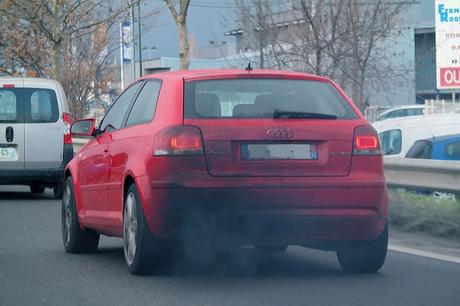Amsterdam will ban the driving of cars and motorbikes run on petrol and diesel from the year 2030.
The council of the city has planned the change as an anti-pollution drive to reduce air pollution. The authorities blame the city’s air pollution to be the reason that cut short the life expectancy of the people of Amsterdam by a year.

“Pollution often is a silent killer and is one of the greatest health hazards in Amsterdam,” said the councilor responsible for the city’s traffic, Sharon Dijksma, announcing the municipality’s decision.
The diesel cars, 15 years or older will be banned to enter the area within the A10 ring road around the Dutch capital from the next year.
Public transport like buses and coaches that emit exhaust fumes cannot enter the city center any more from 2022. There is also plan to extend the purview of the ban to pleasure crafts on its waters, mopeds and light mopeds By 2025.
Under the Clean Air Action plan, the entire traffic should be emission-free within the built-up area by 2030.
The city plans to offer charging stations to every buyer of electric and hydrogen cars to encourage its residents to switch to such vehicles. As such, in the coming years, the boom in the second-hand electric car market can be expected.
The viability of the project requires 16,000 to 23,000 charging stations more from 3000 at present in the city by 2025.
Netherlands’ air pollution is worse than European rules permit because of the heavy traffic in the cities of Amsterdam, Rotterdam, and Maastricht. It is a matter of concern that emissions of particle matter and the levels of nitrogen dioxide are leading to respiratory illnesses.
Rai Association, the lobby group of the automotive industry, condemned the plan as bizarre and regressive. A spokesman said: “Many tens of thousands of families who have no money for an electric car will soon be left out in the cold. That makes Amsterdam a city of the rich.
“In 2030, about one-third of the cars will be electric, we expect. But there will also be a lot of people who won’t be able to afford that by then.”
The Dutch health council warned the government in January 2018 about the “blanket of pollution” that would cause significant health problems in the country and also asked the government to devise an ambitious strategy for improving the Netherlands’ air quality.
Governments and city authorities worldwide are moving towards barring cars to run on the streets that cause emissions of greenhouse gases.
Last year, Madrid started restricting access to petrol vehicles made before 2000 and diesel vehicles manufactured before 2006. Rome has pledged to forbid vehicles that run on diesel from the city center by 2024.
“Air quality has been breaching acceptable levels for 10 years and people in the city are being exposed to air that has clear effects on their health, especially those who are most vulnerable, such as children and older people,” said Inés Sabanés, councilor for the environment and mobility of Madrid.
“There’s research that shows clear links between pollution peaks and hospital admissions. It has a very clear effect on health – on the number of deaths and premature births.”
Virginia Raggi of Rome announced the decision on her Facebook page on Tuesday, saying: “If we want to intervene seriously, we have to have the courage to adopt strong measures.”
The Danish government also declared that it would stop selling new petrol and diesel cars from 2030 and hybrid vehicles from 2035.

